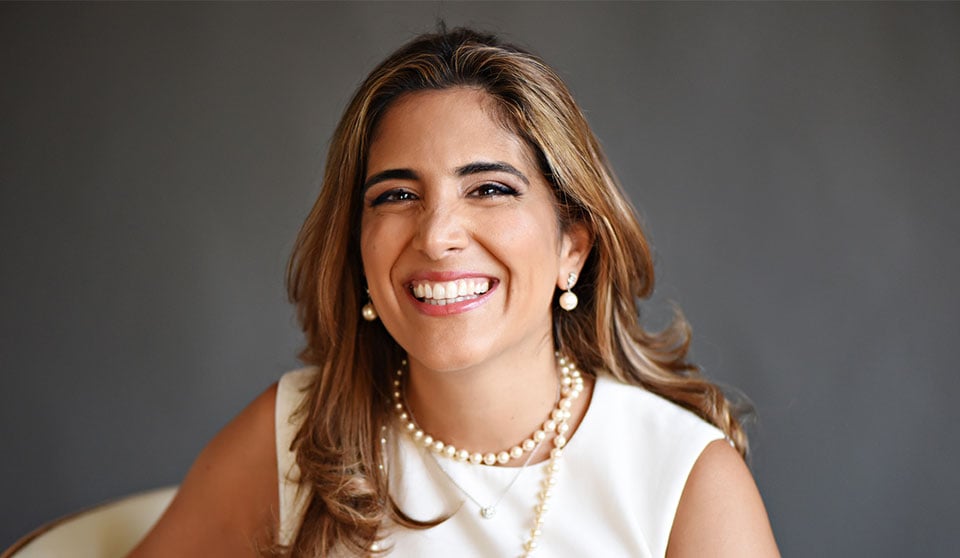Networking is never effective if approached as transactional

Networking styles do not have to fit a specific model, but Leila Rafi, a partner in the capital markets and M&A group at McMillan LLP, says developing and maintaining relationships is a life commitment and should be done meaningfully.
Young lawyers should focus on building their technical expertise for the first two years of their careers, but as they grow in the profession and opportunities arise, Rafi says taking advantage of networking opportunities is crucial.
“Don’t be shy to tell the people that you’re working with if you’re interested in something particular,” Rafi says
At the onset of her legal career, Rafi says she attended all the major events relevant to her practice to develop relationships with people and became friends with many of the people she worked with by taking an interest in their lives and staying connected even after they left the firm.
“I always made a point to ask for business cards of people that I met and followed up with them after to try to meet for coffee or lunch, or stay in touch with them. I added them to my LinkedIn account. I would congratulate them on work anniversaries or new jobs, or birthdays.”
“Staying in touch with people and keeping up with them and seeing what’s happening in the organizations they work for, with their families, or if they get married -- it’s amazing how these things build on one another.”
Rafi advises on a range of corporate and securities law matters and is an adjunct professor for an introductory securities law course at the Queen’s University law school. She will be moderating on “Finding a mentor and effective networking” in the Canadian Lawyer’s Young Lawyers Summit on November 25.
Rafi says intuitively meeting people and building relationships is a significant component of building her practice. “Many of my clients now are people that I’ve worked with or gone to school with, and they send me referrals.”
She has a substantial network and stays in touch with people by discovering their interests and sending them relevant, related information. “I had a client whose child was being bullied, so I sent him articles on bullying and I find that strengthens relationships and get people to think of you more often.”
Young lawyers should attend many events, even if not comfortable meeting anyone, Rafi says. Watch what other people are doing, listen to presentations made, take notes, follow up with speakers afterwards, and share thoughts on their presentation “because it shows you’re committing time to understanding what’s happening on a day-to-day basis in the area that you’re interested in.”
She says that lawyers who are introverted and uncomfortable approaching people in person can network in alternative ways. For example, attending an event and following up over email or asking for phone calls.
Reading articles on current events and setting up google alerts about new articles that cover a specific industry area are also crucial to remain informed on areas of the law. “When you attend the events and sign up for things, you want to make sure you have something to talk about and the way that you do that is making sure you know what’s happening in the world and with respect to the industry area you’re wanting to practice because that sets you apart from other people.”
Joining organizations and attending events with people who practice in a similar area of law is a great idea, Rafi says. “Aside from just meeting people, it’s a commitment to growing relationships and getting to know people and keeping in touch with them over time, because people end up moving jobs and things happen and so the extent that you can keep up with them is usually quite meaningful.”
Rafi also broadened her networks by participating in a professional book club of U.S lawyers, where she says she received many referrals. She urges young lawyers to create their networking streams if they are unable to access one. “To the extent there is no book club, you can start one and you can invite lawyers from different firms, especially in a different jurisdiction, and that way you can meet a lot of people and build your network and possibly get referral sources at the same time.”
Lawyers who have been in their practice for a few years should have coaches to improve their ability to manage their practice as their career progresses, Rafi says. “Whether that means that you need help with networking, or help with building a business plan, or help with tips on how to manage a heavy workload coaching can be very helpful.”
In January 2021, she created a first-generation affinity group for individuals who were the first of their family to be raised or born in Canada at McMillan after she tried joining other affinity groups but could not identify with any. It is a safe space where first-generation Canadians can talk about commonalities or similar types of experiences that “we’ve had and we really enjoy it,” Rafi says.
Networking is a myriad of different ways to create relationships; it’s making connections and building a brand while doing it, Rafi says, and reading books on professional development is very helpful in understanding how to build a profile and build brands.
“If you kind of approach networking like, ‘I’m going to do this if I get this in return,’ or ‘I am only going to go to lunch if that person gives me work,’ like that never works. So, you have to think of it as a bigger, broader thing.”










